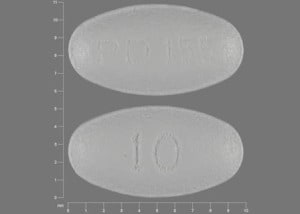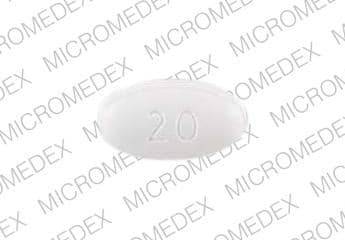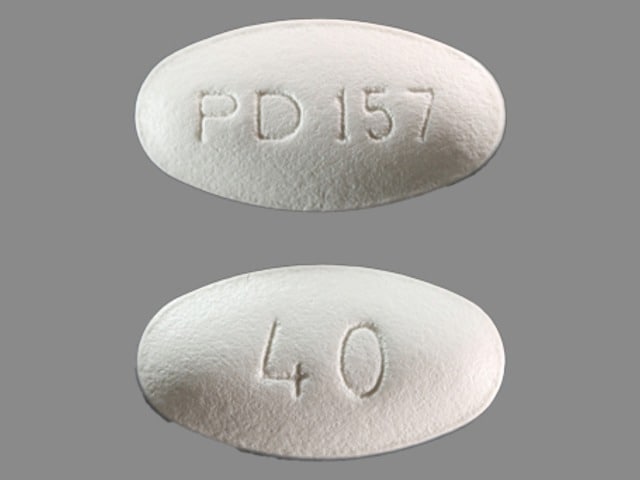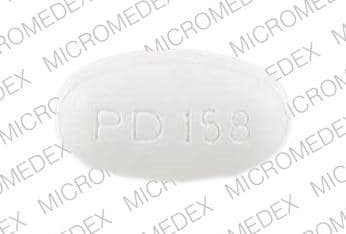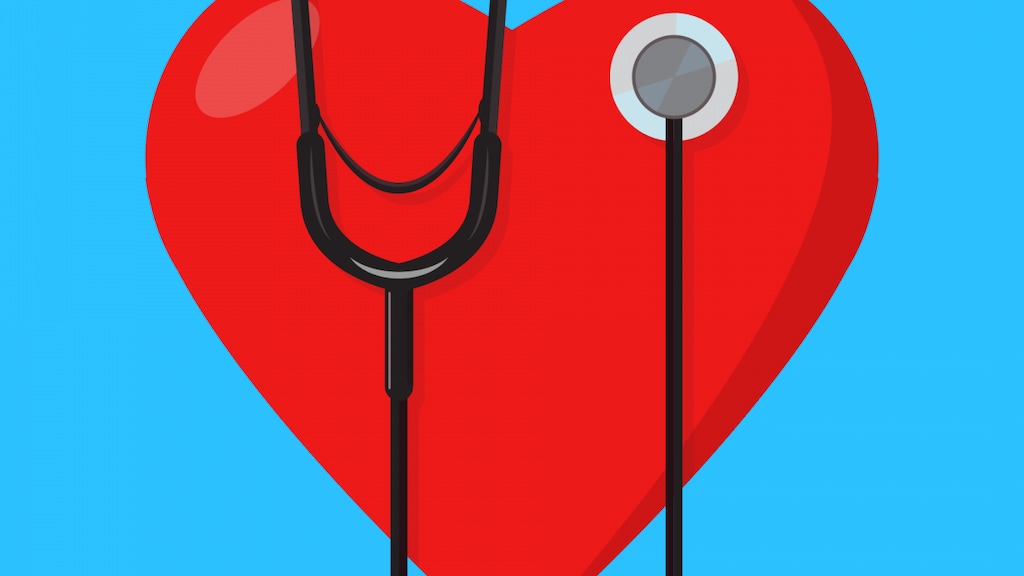What is Lipitor?
Lipitor is a prescription medicine that lowers cholesterol in your blood. It lowers the LDL-C ("bad" cholesterol) and triglycerides in your blood. It can raise your HDL-C ("good" cholesterol) as well. Lipitor is for adults and children over 10 whose cholesterol does not come down enough with exercise and a low-fat diet alone.
Lipitor can lower the risk for heart attack, stroke, certain types of heart surgery, and chest pain in patients who have heart disease or risk factors for heart disease such as:
- age
- smoking
- high blood pressure
- low HDL-C
- heart disease in the family
Lipitor can lower the risk for heart attack or stroke in patients with diabetes and risk factors such as:
- eye problems
- kidney problems
- smoking
- high blood pressure
Lipitor starts to work in about 2 weeks
What is Cholesterol?
Cholesterol and triglycerides are fats that are made in your body. They are also found in foods. You need some cholesterol for good health, but too much is not good for you. Cholesterol and triglycerides can clog your blood vessels. It is especially important to lower your cholesterol if you have heart disease, smoke, have diabetes or high blood pressure, are older, or if heart disease starts early in your family.
Who should not take Lipitor?
Do not take Lipitor if you:
- are pregnant or think you may be pregnant, or are planning to become pregnant. Lipitor may harm your unborn baby. If you get pregnant, stop taking Lipitor and call your doctor right away.
- are breast feeding. Lipitor can pass into your breast milk and may harm your baby.
- have liver problems.
- are allergic to Lipitor or any of its ingredients. The active ingredient is atorvastatin. See below for a complete list of ingredients in Lipitor.
Lipitor dosing has not been established in children under 10 years of age.
What should I tell my healthcare provider before taking Lipitor?
Before you start Lipitor tell your doctor if you:
- have muscle aches or weakness
- drink more than 2 glasses of alcohol daily
- have diabetes
- have a thyroid problem
- have kidney problems
Some medicines should not be taken with Lipitor. Tell your doctor about all the medicines you take, including prescription and non-prescription medicines, vitamins, and herbal supplements. Lipitor and certain other medicines can interact causing serious side effects. Especially tell your doctor if you take medicines for:
- your immune system
- cholesterol
- infections
- birth control
- heart failure
- HIV or AIDS
- hepatitis C virus
Know all the medicines you take. Keep a list of them with you to show your doctor and pharmacist.
How should I take Lipitor?
- Take Lipitor exactly as prescribed by your doctor. Do not change your dose or stop Lipitor without talking to your doctor. Your doctor may do blood tests to check your cholesterol levels during your treatment with Lipitor. Your dose of Lipitor may be changed based on these blood test results.
- Take Lipitor each day at any time of day at about the same time each day. Lipitor can be taken with or without food.
- Don't break Lipitor tablets before taking.
- Your doctor should start you on a low-fat diet before giving you Lipitor. Stay on this low-fat diet when you take Lipitor.
- If you miss a dose of Lipitor, take it as soon as you remember. Do not take Lipitor if it has been more than 12 hours since you missed your last dose. Wait and take the next dose at your regular time. Do not take 2 doses of Lipitor at the same time.
- If you take too much Lipitor or overdose, call your doctor or Poison Control Center right away. Or go to the nearest emergency room.
What should I avoid while taking Lipitor?
- Talk to your doctor before you start any new medicines. This includes prescription and non-prescription medicines, vitamins, and herbal supplements. Lipitor and certain other medicines can interact causing serious side effects.
- Do not get pregnant. If you get pregnant, stop taking Lipitor right away and call your doctor.
What are the possible side effects of Lipitor?
Lipitor can cause serious side effects. These side effects have happened only to a small number of people. Your doctor can monitor you for them. These side effects usually go away if your dose is lowered or Lipitor is stopped. These serious side effects include:
- Muscle problems. Lipitor can cause serious muscle problems that can lead to kidney problems, including kidney failure. You have a higher chance for muscle problems if you are taking certain other medicines with Lipitor.
- Liver problems. Your doctor should do blood tests to check your liver before you start taking Lipitor and if you have symptoms of liver problems while you take Lipitor. Call your doctor right away if you have the following symptoms of liver problems:
- feel tired or weak
- loss of appetite
- upper belly pain
- dark amber colored urine
- yellowing of your skin or the whites of your eyes
Call your doctor right away if you have:
- muscle problems like weakness, tenderness, or pain that happen without a good reason, especially if you also have a fever or feel more tired than usual. This may be an early sign of a rare muscle problem.
- muscle problems that do not go away even after your doctor has advised you to stop taking Lipitor. Your doctor may do further tests to diagnose the cause of your muscle problems.
- allergic reactions including swelling of the face, lips, tongue, and/or throat that may cause difficulty in breathing or swallowing which may require treatment right away.
- nausea and vomiting.
- passing brown or dark-colored urine.
- you feel more tired than usual
- your skin and whites of your eyes get yellow.
- stomach pain.
- allergic skin reactions.
In clinical studies, patients reported the following common side effects while taking Lipitor:
- diarrhea
- upset stomach
- muscle pain
- joint pain
- alterations in some laboratory blood tests.
The following additional side effects have been reported with Lipitor:
- tiredness
- tendon problems
- memory loss
- confusion.
Talk to your doctor or pharmacist if you have side effects that bother you or that will not go away.
These are not all the side effects of Lipitor. Ask your doctor or pharmacist for a complete list.
Lipitor Images
Drug Interactions
A total of 424 medications are known to interact with Lipitor. Use the Interactions Checker Tool.
Common Interactions Checks
General information about Lipitor
Medicines are sometimes prescribed for conditions that are not mentioned in patient information leaflets. Do not use Lipitor for a condition for which it was not prescribed. Do not give Lipitor to other people, even if they have the same problem you have. It may harm them.
This guide summarizes the most important information about Lipitor. If you would like more information, talk with your doctor. You can ask your doctor or pharmacist for information about Lipitor that is written for health professionals. Or you can go to the Lipitor website at www.Lipitor.com.
How do I store Lipitor?
- Store Lipitor at room temperature, 68 to 77°F (20 to 25°C).
- Do not keep medicine that is out of date or that you no longer need.
- Keep Lipitor and all medicines out of the reach of children. Be sure that if you throw medicine away, it is out of the reach of children.
What are the ingredients in Lipitor?
Active Ingredient: atorvastatin calcium
Inactive Ingredients: calcium carbonate, USP; candelilla wax, FCC; croscarmellose sodium, NF; hydroxypropyl cellulose, NF; lactose monohydrate, NF; magnesium stearate, NF; microcrystalline cellulose, NF; Opadry White YS-1-7040 (hypromellose, polyethylene glycol, talc, titanium dioxide); polysorbate 80, NF; simethicone emulsion.

